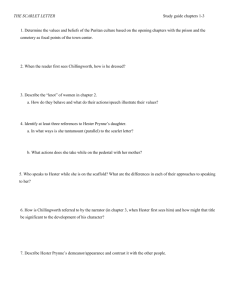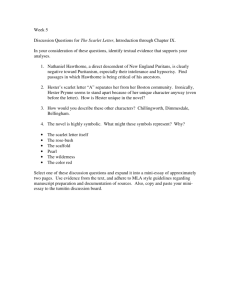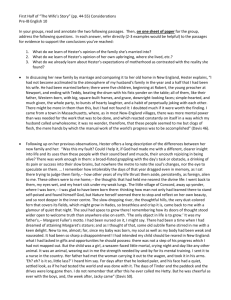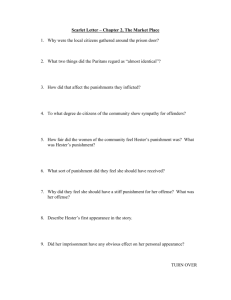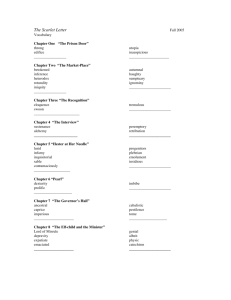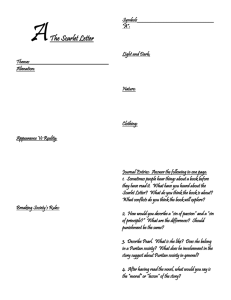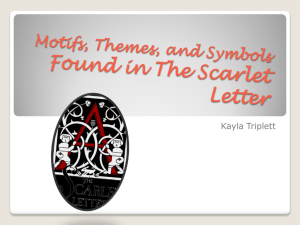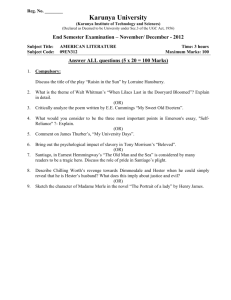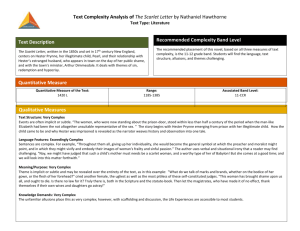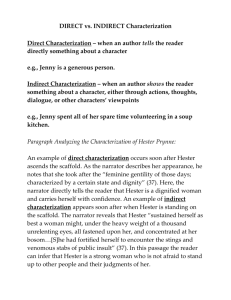The Scarlet Letter (Ch.1-4)
advertisement
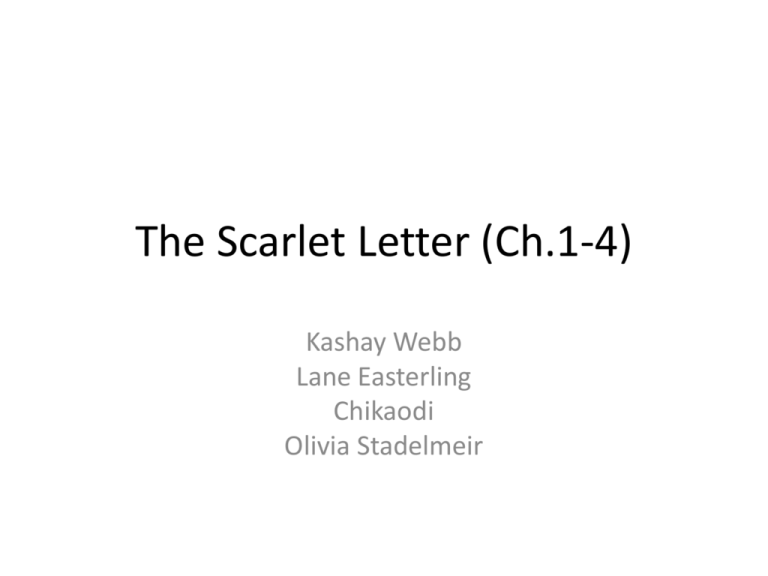
The Scarlet Letter (Ch.1-4) Kashay Webb Lane Easterling Chikaodi Olivia Stadelmeir Summary • The novel starts out with a crowd of the towns people waiting outside the prison door. From the prison door emerges Hester Prynne with a huge bright red scarlet letter sewn to her dress, on her chest, and her carrying a baby. She is placed as the center of attention when she is led to the center of the crown and ordered to stand on top of a high platform. The crowd below stares and gossips about the possible actions that could have gotten her in such a situation. A man that claims to be a traveler of various places and accompanied Indians asks a random neighbor what the gather was for, the neighbor replies and finally explains that Hester's husband is dead for the past two years but she managed to give birth to a child, suggesting that adultery had been committed. Hester is being punished by being shamed in front of all the towns people since puritans enact strict interpretation of biblical preaching. Hester was ordered to announce the name of the father of the child but she refuses. At this point she has noticed her husband, Roger Prynne in the crowd. After so many scoldings and proclamations and Hester's refusal to confess the name, she was ordered back in prison. Her husband gains entrance as a physician and makes a finial bargain with Hester. This was to keep his identity a secret while he would avenge his anger toward the father of the child. During this conversation, they each realized how they betrayed one another, Hester committing adultery, Roger marring Hester inspite of his age and with full acknowledgement that Hester did not love him. Character Analysis Character Analysis Cont. Key Motifs and Images Narratorial Tone Tone towards people and objects • Narrator has clear opinions of all the characters. • Hester Prynne is viewed favorably. “The young woman was tall, with a figure of perfect elegance, on a large scale.” (Page 37, Chapter 2) He portrays her as an angel fallen from heaven. • Robert Chillingworth, Hester’s “former” husband, is presented as a smarmy, self-preserving man who is only concerned with revenge. The narrator, taking the side of Hester, is critical of his appearance and demeanor. • Arthur Dimmesdale, Hester’s minister, is seen as a neutral and timid character. The narrator describes him as “… tremulous.” (Page 46, Chapter 3) • The gallows is a very important symbol in Chapter 3. Not only is Hester meant to stand on it as a symbol for her death in society, but it also is placed in the town center. This symbolizes the Puritan’s focus on punishment and not repair. Narratorial Tone Cont. Tone towards events • Hester’s exit from the jail is the first action in the book. The narrator portrays the event as a moment like an angel descending into hell. He describes her radiance and beauty in stark contrast to the sullen and solemn towns folk. • Another major action the narrator focuses on is Hester’s refusal to speak her lover’s name. “’I will not speak!’ answered Hester…’And my child must seek a heavenly Father; she shall never know an earthly one.” (Page 47, Chapter 3) • Hester’s sentence of standing on the scaffold for 3 hours is a cruel one. The town surrounds her and stairs at her from all sides, piecing her apart and stripping her of all humanity.
